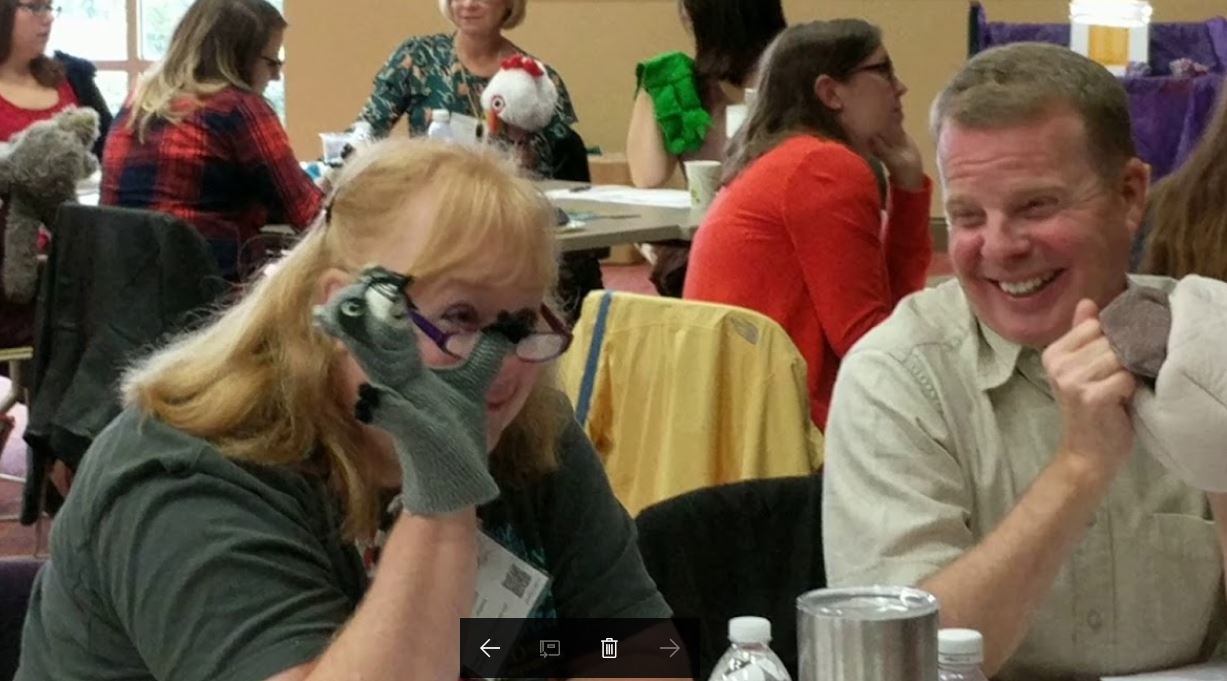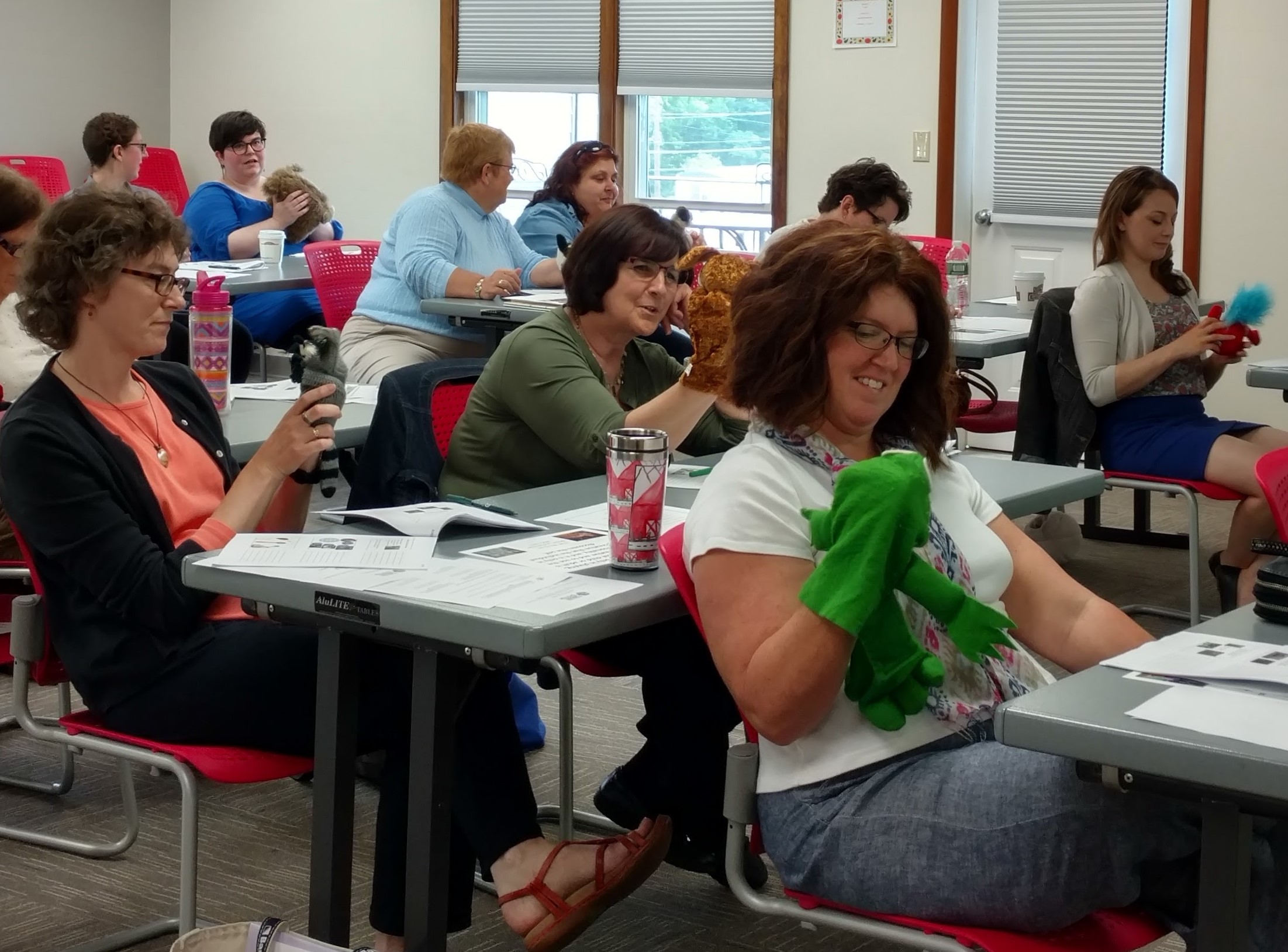**NEW**
The following three trainings have been approved by the Maryland State Department of Education to help childcare providers earn Core of Knowledge Hours. For more information and to book trainings, please contact info@mgol.org
Playful Strategies to Nurture the Brain While Building Early Literacy and Self-Regulation Skills – 3 Core of Knowledge/Hours: 1 hour Child Development and 2 hours Curriculum
Scientific findings regarding brain research and multiple aspects of child development serve as a foundation for intentional planning of simple skill-building song and rhyme activities. Attendees participate in hands-on activities to experience a variety of playful strategies for building early literacy, self-regulation, STEAM (science, technology, engineering, the arts, and math), and other school readiness skills. Attendees also practice adapting these activities in order to build on individual children’s strengths.
Objective 1: Describe at least one strategy that enables children build early literacy skills. CE.1.C.b, CE.3-N.b, CE.5-C.c, CE6-N.b
Objective 2: Describe at least one strategy that enables children to practice self-regulation skills. CD.2.D-A.a
Objective 3: Describe one way to use a picture book which does not involve reading the entire text cover to cover. CE.10-C.c
Objective 4: Name one way that the emotional content of experiences affects brain development. CD.2.C-A.b
Objective 5: Choose a song or rhyme’s activity and describe one way it can be adapted for a child with special needs. CE.4-P.a
——-
Using Songs and Rhymes in Playful Ways to Build Early Literacy and Self-Regulation Skills – 6 Core of Knowledge/Hours: 3 hours Child Development and 3 hours Curriculum
(can be offered as a 2-day workshop with 3 hours per day, or as a full day 6-hour workshop )
The first day of this two-day workshop covers foundational brain research, optimal learning environments with play-based learning, and domains of school readiness followed by participating in song and rhyme activities designed to help children from birth to age five develop and strengthen early literacy and self-regulation skills.
After a refresher on the second day, workshop attendees design a song or rhyme activity that targets one of those skills, create a felt piece to go along with it, present it to the group, and describe the skills that are being developed.
In addition to emphasizing the importance of learning by doing, this workshop provides replicable models of learning by doing throughout both days of training.
This training teaches participants to recognize, locate, know how to use, and become comfortable making resources that facilitate developmentally appropriate activities and programs to build early literacy and self-regulation skills. This training increases knowledge of songs and rhymes that can be paired with skill-building activities for use with individual children, for classroom management, for circle times, or for family engagement programming.
As a result of this training, participants will be able to:
First day: (Child Development)
Objective 1: Name one way that the emotional content of experiences affects brain development. CD.2.C-A.b
Objective 2: Name at least two ingredients present in an optimal learning environment based on a child’s developing brain. CD.5.C-C (also CD.5.B-I)
Objective 3: . Describe at least one strategy that enables children to practice self-regulation skills. CD.2.D-A.a
Second Day: (Curriculum)
Objective 4: . Identify at least two new songs and rhymes to use with children. CE.12-C.c
Objective 5: Explain one way that using rhymes and songs with felt pieces helps to build early literacy skills. CE.1.C.b, CE.3-N.b, CE.5-C.c, CE6-N.b
Objective 6: Describe one way to use a picture book which does not involve reading the entire text cover to cover. CE.10-C.c
———
Play Your Way to Literacy: Research, Practical Suggestions, and Activities for Playful Learning – 6 Core of Knowledge/Hours: 3 hours Child Development and 3 hours Curriculum
Experience play in the context of Every Child Ready to Read and Mind in the Making; examine ways to ignite imagination and build skills by adding more play into your routines, discuss research supporting the importance of play, and create developmental tips to encourage positive play between parents and children in order to foster family engagement.
As a result of this training, participants will be able to:
Objective 1: Identify three important characteristics of play and play-based learning experiences. CD.5.D-I.a
Objective 2: Explain how play and play-based learning experiences support children’s healthy growth and development. CD.5.D-Ic
Objective 3: Demonstrate a variety of playful approaches to support language development, communication skills, and literacy. CE.12-I.1
Objective 4: Describe one way to work in partnership with families to assist them as the first and most influential component of their child’s development. CD.4B-C.b
Objective 5: Illustrate ways to use play as the foundation for positive interactions, learning, development in 3 different domains. CE.1-I.b




